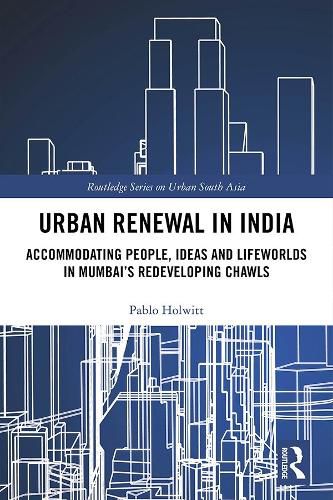Readings Newsletter
Become a Readings Member to make your shopping experience even easier.
Sign in or sign up for free!
You’re not far away from qualifying for FREE standard shipping within Australia
You’ve qualified for FREE standard shipping within Australia
The cart is loading…






This book interrogates contemporary processes of neoliberal urban renewal in the Global South by studying the model of chawl redevelopment in Mumbai, India.
The model of chawl redevelopment is used to address questions surrounding contemporary urban renewal. Focusing on attempts to redevelop Mumbais central middle-class neighbourhoods, popularly known as Girgaum, into a modern downtown of a global metropolis, the author sheds light on the impact this development model has on the everyday lives of people inhabiting transformed urban environments. He examines, from an ethnographic perspective, apparently contradictory intentions of planners, investors, residents, activists and politicians. A combination of detailed and vivid ethnographic accounts and incisive theoretical arguments, the book shows that the highly contested and controversial approach of chawl redevelopment serves as an example of the manifold ideological tendencies in India today, and how they combine, clash and continuously shape each other in surprising and unpredictable ways.
Offering new insights in the topics of class dynamics in the era of globalization and neoliberalism, urban gating, sense studies, and urban politics in South Asia, this book will be of interest to academics working on South Asian Studies, Anthropology, Sociology, as well as Urban and Global Studies.
$9.00 standard shipping within Australia
FREE standard shipping within Australia for orders over $100.00
Express & International shipping calculated at checkout
This book interrogates contemporary processes of neoliberal urban renewal in the Global South by studying the model of chawl redevelopment in Mumbai, India.
The model of chawl redevelopment is used to address questions surrounding contemporary urban renewal. Focusing on attempts to redevelop Mumbais central middle-class neighbourhoods, popularly known as Girgaum, into a modern downtown of a global metropolis, the author sheds light on the impact this development model has on the everyday lives of people inhabiting transformed urban environments. He examines, from an ethnographic perspective, apparently contradictory intentions of planners, investors, residents, activists and politicians. A combination of detailed and vivid ethnographic accounts and incisive theoretical arguments, the book shows that the highly contested and controversial approach of chawl redevelopment serves as an example of the manifold ideological tendencies in India today, and how they combine, clash and continuously shape each other in surprising and unpredictable ways.
Offering new insights in the topics of class dynamics in the era of globalization and neoliberalism, urban gating, sense studies, and urban politics in South Asia, this book will be of interest to academics working on South Asian Studies, Anthropology, Sociology, as well as Urban and Global Studies.